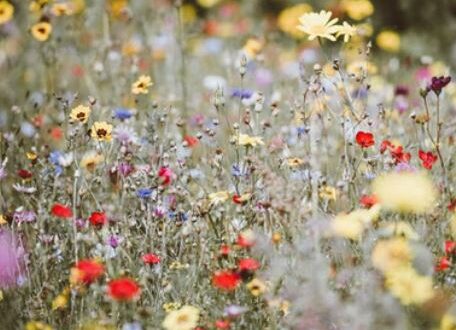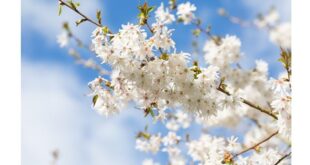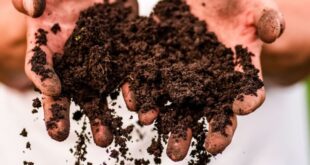As gardeners, we are all in touch with the natural world. Not only should we care about the climate crisis as regular citizens, but a changing world will affect how things look in our own natural green havens as well. Hotter weather and more extreme rainfall can be challenging for those struggling to give their plants what they need.
For some people, their garden is a work of art, for others it’s a chance to experiment, and for others it’s a place for socialising and enjoying the weather. Therefore, every garden is different. Luckily, there are several things that we can all do to make our beloved sanctuaries more sustainable.
Whilst at first these changes might feel unusual and require you to go a little out of your way, once they’re embedded into your gardening routine, you’ll never even think about the old ways you used to do things. We take a look at three positive changes that you can make that will collectively make a big difference.
Lawn alterations
Whilst a freshly cut, vivid green lawn is the epitome of British summer time, keeping things a bit less like Wimbledon Centre Court and a bit more rural countryside will help encourage local insects and other creatures to your garden. To take it a step further, get a lawn mix that has drought resistant grass seed so that you don’t have to worry about getting a dry brown lawn in summer, or using precious water to keep it green.
A less manicured lawn will need less maintenance too, so you won’t be using your petrol or electric lawnmower as much, so it will be better for the environment. Even better, if you have a small lawn and like to keep fit, then get a push mower.
Planting a small section of wildflower meadow can also be a haven for bees and butterflies. Whether you choose to turn your whole lawn into a wildflower field or just plant up a small section, doing so will create the wild habitat that insects, invertebrates and birds need to thrive. This can be particularly important in urban areas where they might not have enough wild spaces to roam.
Choosing native plants
Whilst there are many plants that will capture your attention when you visit other gardens, just because they’re thriving there doesn’t mean they’ll thrive with you. Every area has its own combination of soil, climate and nutrients, which come together to provide the ideal conditions for certain plants.
Investigating what plants are native to your area and what might suit your garden is crucial for success. Taking this into account will also be beneficial for the environment, as you won’t have to use artificial means to create the ideal environment for your plants. For example, if you live in a hot area, trying to grow jungle plants that are native to cooler, more humid climates will only be an uphill battle that requires plenty of watering. Work with your garden, rather than trying to fight it.
Whilst part of the joy of the gardening community is being able to share plants, try and keep the majority of your garden full of locally native plants and plants from the surrounding country. Importing plants is heavily controlled, but any plants coming from abroad also carry the risk of bringing new pests with them, so make sure to purchase them from a reputable source.
Peat-free compost
Peatland areas are great for helping to reduce the impact of environmental damage due to climate change. They store carbon and help with flooding, both of which are on the rise, as well as creating unique homes for certain species of wildlife.
Peat has been a common ingredient in garden centre soil mixes for years, as it can easily hold water and is pest-free. This has made it an attractive option for pots, but in order to get hold of it, the peat needs to be dug out of the peatland areas. Whilst trees are well-known as carbon storers, peat is actually twice as effective when left alone. Unfortunately, digging it up for use in compost means that the carbon it is storing is released back into the environment.
Making sure to choose a peat-free option is a great switch that will directly impact the landscape as well as carbon emissions.
To sum up
Whilst at first glance gardening appears to be a relatively sustainable passion, there is still room for improvement. Making these small switches can help the environment around you and make a garden a haven for wildlife, as well as you.
 Gardeners Club The Gardeners Club is a free to join online club for everyone with an interest in gardening and gardens.
Gardeners Club The Gardeners Club is a free to join online club for everyone with an interest in gardening and gardens.





